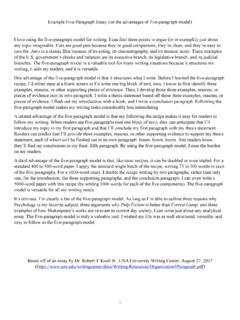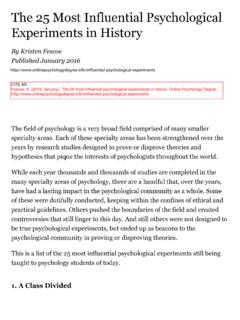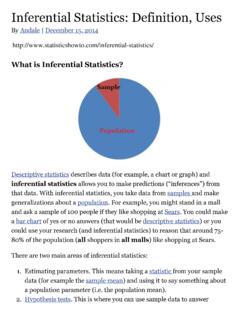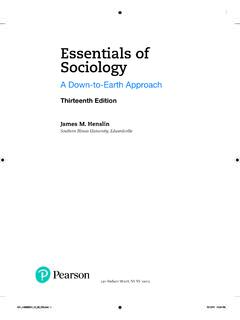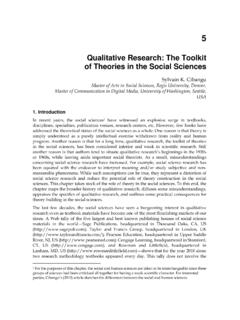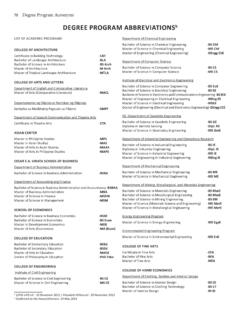Transcription of The 10 Most Controversial Psychology Studies Ever Published
1 The 10 Most Controversial PsychologyStudies Ever PublishedSeptember 19, 2014 Controversy is essential to scientific progress. As Richard Feynman said, science is the belief in the ignorance of experts. Nothing is taken on faith,all assumptions are open to further scrutiny. It s a healthy sign therefore thatpsychology Studies continue to generate great controversy. Often the heat iscreated by arguments about the logic or ethics of the methods, other times it sbecause of disagreements about the implications of the findings to ourunderstanding of human nature. Here we digest ten of the most controversialstudies in Psychology s history. Please use the comments to have your say onthese controversies, or to highlight provocative Studies that you think shouldhave made it onto our The Stanford Prison ExperimentConducted in 1971, Philip Zimbardo s experimenthad to be aborted when students allocated to therole of prison guards began abusing students whowere acting as prisoners.
2 Zimbardo interpreted theevents as showing that certain situations inevitablyturn good people bad, a theoretical stance he laterapplied to the acts of abuse that occurred at the Abu Ghraib prison camp inIraq from 2003 to 2004. This situationist interpretation has been challenged,most forcibly by the British psychologists Steve Reicher and Alex pair argue, on the basis of their own BBC Prison study and real-lifeinstances of prisoner resistance, that people do not yield mindlessly to toxicenvironments. Rather, in any situation, power resides in the group thatmanages to establish a sense of shared identity. Critics also point out thatZimbardo led and inspired his abusive prison guards; that the StanfordPrison Experiment (SPE) may have attracted particular personality types;and that many guards did behave appropriately.
3 The debate continues, asdoes the influence of the SPE on popular culture, so far inspiring at least twofeature length , P. G. (1972). Comment: Pathology of imprisonment. Society, 9(6),4-8. Google Scholar Citations: , C., Banks, W. C., & Zimbardo, P. G. (1973). Study of prisoners andguards in a simulated prison. Naval Research Reviews, 9(1-17). GoogleScholar Citations: The Milgram Shock Experiments Stanley Milgram s Studies conducted in the 1960s appearedto show that many people are incredibly obedient toauthority. Given the instruction from a scientist, manyparticipants applied what they thought were deadly levelsof electricity to an innocent person. Not one study, butseveral, Milgram s research has inspired many imitations,including in virtual reality and in the form of a French TVshow. The original Studies have attracted huge controversy,not only because of their ethically dubious nature, but also because of the waythey have been interpreted and used to explain historical events such as thesupposedly blind obedience to authority in the Nazi era.
4 Haslam and Reicherhave again been at the forefront of counter-arguments. Most recently, basedon archived feedback from Milgram s participants, the pair argue that theobserved obedience was far from blind in fact many participants werepleased to have taken part, so convinced were they that their efforts weremaking an important contribution to science. It s also notable that manyparticipants in fact disobeyed instructions, and in such cases, verbal promptsfrom the scientist were largely , S. (1963). Behavioral study of obedience. The Journal of Abnormaland social Psychology , 67(4), 371. Google Scholar Citations: 34743. The Elderly-related Words Provoke Slow Walking Experiment(and other social priming research)One of the experiments in a 1996 paper publishedby John Bargh and colleagues showed that whenpeople were exposed to words that pertained tobeing old, they subsequently walked away from thelab more slowly.
5 This finding is just one of many inthe field of social priming research, all of which suggest our minds are farmore open to influence than we realise. In 2012, a different lab tried toreplicate the elderly words study and failed. Professor Bargh reacted since, the controversy over his study and other related findings has onlyintensified. Highlights of the furore include an open letter from NobelLaureate Daniel Kahneman to researchers working in the area, and a massreplication attempt of several Studies in social Psychology , including socialpriming effects. Much of the disagreement centres around whetherreplication attempts in this area fail because the original effects don t exist, orbecause those attempting a replication lack the necessary research skills,make statistical errors, or fail to perfectly match the original research , J.
6 A., Chen, M., & Burrows, L. (1996). Automaticity of social behavior:Direct effects of trait construct and stereotype activation on action. Journal ofpersonality and social Psychology , 71(2), 230. Google Scholar Citations: 32764. The Conditioning of Little AlbertBack in 1920 John Watson and his future wife Rosalie Rayner deliberatelyinduced fears in an 11-month-old baby. They did this by exposing him to aparticular animal, such as a white rat, at the same time as banging a steel barbehind his head. The research is Controversial not just because it seems sounethical, but also because the results have tended to be reported in aninaccurate and overly simplified way. Many textbooks claim the study showshow fears are easily conditioned and generalised to similar stimuli; they saythat after being conditioned to fear a white rat, Little Albert subsequentlyfeared all things that were white and fluffy.
7 In fact, the results were farmessier and more inconsistent than that, and the methodology was poorlycontrolled. Over the last few years, controversy has also developed around theidentity of poor Little Albert. In 2009, a team led by Hall Beck claimed thatthe baby was in fact Douglas Merritte. They later claimed that Merritte wasneurologically impaired, which if true would only add to the unethical natureof the original research. However, a new paper Published this year by BenHarris and colleagues argues that Little Albert was actually a child known asAlbert , J. B., & Rayner, R. (1920). Conditioned emotional reactions. Journalof Experimental Psychology , 3(1), 1. Google Scholar Citations: 20315. Loftus Lost in The Mall StudyIn 1995 and 96, Elizabeth Loftus, James Coanand Jacqueline Pickrell documented how easy itwas to implant in people a fictitious memory ofhaving been lost in a shopping mall as a child.
8 Thefalse childhood event is simply described to aparticipant alongside true events, and over a few interviews it soon becomesabsorbed into the person s true memories, so that they think the experiencereally happened. The research and other related findings became hugelycontroversial because they showed how unreliable and suggestible memorycan be. In particular, this cast doubt on so-called recovered memories ofabuse that originated during sessions of psychotherapy. This is a highlysensitive area and experts continue to debate the nature of false memories,repression and recovered memories. One challenge to the lost in the mall study was that participants may really have had the childhood experience ofhaving been lost, in which case Loftus methodology was recovering lostmemories of the incident rather than implanting false memories.
9 Thiscriticism was refuted in a later study (pdf) in which Loftus and her colleaguesimplanted in people the memory of having met Bugs Bunny at aficionados will understand why this memory was definitely , E. F., & Pickrell, J. E. (1995). The formation of false annals, 25(12), 720-725. Google Scholar Citations: 677 Loftus, E. F., Coan, J. A., & Pickrell, J. E. (1996). Manufacturing falsememories using bits of reality. Implicit memory and metacognition, 195-220. Google Scholar Citations: 71 Loftus, E. F. (1993). The reality of repressed memories. Americanpsychologist, 48(5), 518. Google Scholar Citations: 14136. The Daryl Bem Pre-cognition StudyIn 2010 social psychologist Daryl Bem attractedhuge attention when he claimed to have shown thatmany established psychological phenomena workbackwards in time. For instance, in one of hisexperiments, he found that people performedbetter at a memory task for words they revised in the future.
10 Bem interpretedthis as evidence for pre-cognition, or psi that is, effects that can t beexplained by current scientific understanding. Superficially at least, Bem smethodology appeared robust, and he took the laudable step of making hisprocedures readily available to other researchers. However, many expertshave since criticised Bem s methods and statistical analyses (pdf), and manyreplication attempts have failed to support the original findings. Furthercontroversy came from the the fact that the journal that Published Bem sresults refused at first to publish any replication attempts. This prompteduproar in the research community and contributed to what s become knownas the replication crisis or replication wars in Psychology . Unabashed,Bem Published a meta-analysis this year (an analysis that collated resultsfrom 90 attempts to replicate his 2010 findings) and he concluded thatoverall there was solid support for his earlier work.
